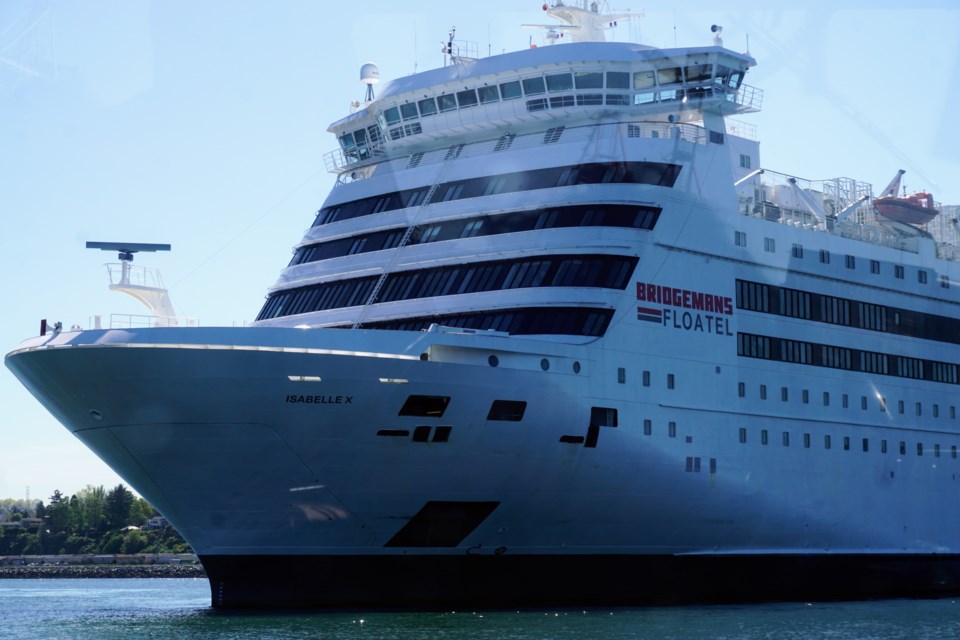The resistance by some on council to the Woodfibre LNG floatel temporary use permit (TUP) is akin to folks standing around while a baby is being born, debating the merits of a pregnancy.
The baby is on its way, folks.
The option is not whether or not to have a baby, but whether we are prepared for it, best we can.
Maybe this is not a good time for a baby, or maybe we never wanted kids at all—noted.
But that ship has sailed; excuse the pun.
The option now is to make the best of life with this baby. But council seems to be in the ‘let’s argue about getting pregnant’ purgatory.
And what is worse, the District council isn’t even a parent of this “baby.” At best, the District is like an aunt and uncle, at least in terms of power over the kid.
The other levels of government, Sḵwx̱wú7mesh Úxwumixw (Squamish Nation), the provincial government and the federal government, agreed to this baby.
And yet, the “aunt and uncle” are doing everything they can to make the transition an obstacle course.
All they have the power to do with the floatel is approve or deny the TUP.
If the company has met the requirements of a TUP, then it should be passed.
Council members are typically thoughtful folks doing their best for their community.
But not on this issue.
There seems to be a conflation of personal identity (‘I am an environmentalist opposed to fossil fuels’) with the necessity of doing what is correct and fair as a sitting councillor.
Has the group applying met the standards that are equally and fairly applied to all those who submit such an application?
If so, we need the TUP passed and the floatel in operation so that hundreds of workers can have a decent place to sleep while they earn their living.
The community and council asked for a solution for workers that was not in town; this is it. They will be kept on a boat seven kilometres away.
Beyond a possible lawsuit that taxpayers would have to foot the bill for, the feet dragging and moving the goalposts on this company could have other far-reaching ramifications.
Let’s say a wind energy company is considering our community as a site for a wind farm.
They may look at the way Woodfibre LNG has been treated, not just by council, but by a faction of the public and say, you know, we don’t think we want to go somewhere where the workers who will build it are vilified. Even if we get approval from the Nation, the province and the feds, and even if we check all the boxes set out in their TUP to-do lists, they may keep moving the goalposts no matter what we do.
If the answer is that the wind farm would not have the process dragged out and the asks expanded on a TUP, and its workers would not be vilified as predators, then what is really at play here?
We may not like certain children—that is OK.
But we have to treat them with an equal measure of respect and fairness—especially if we are only the aunt and uncle.



